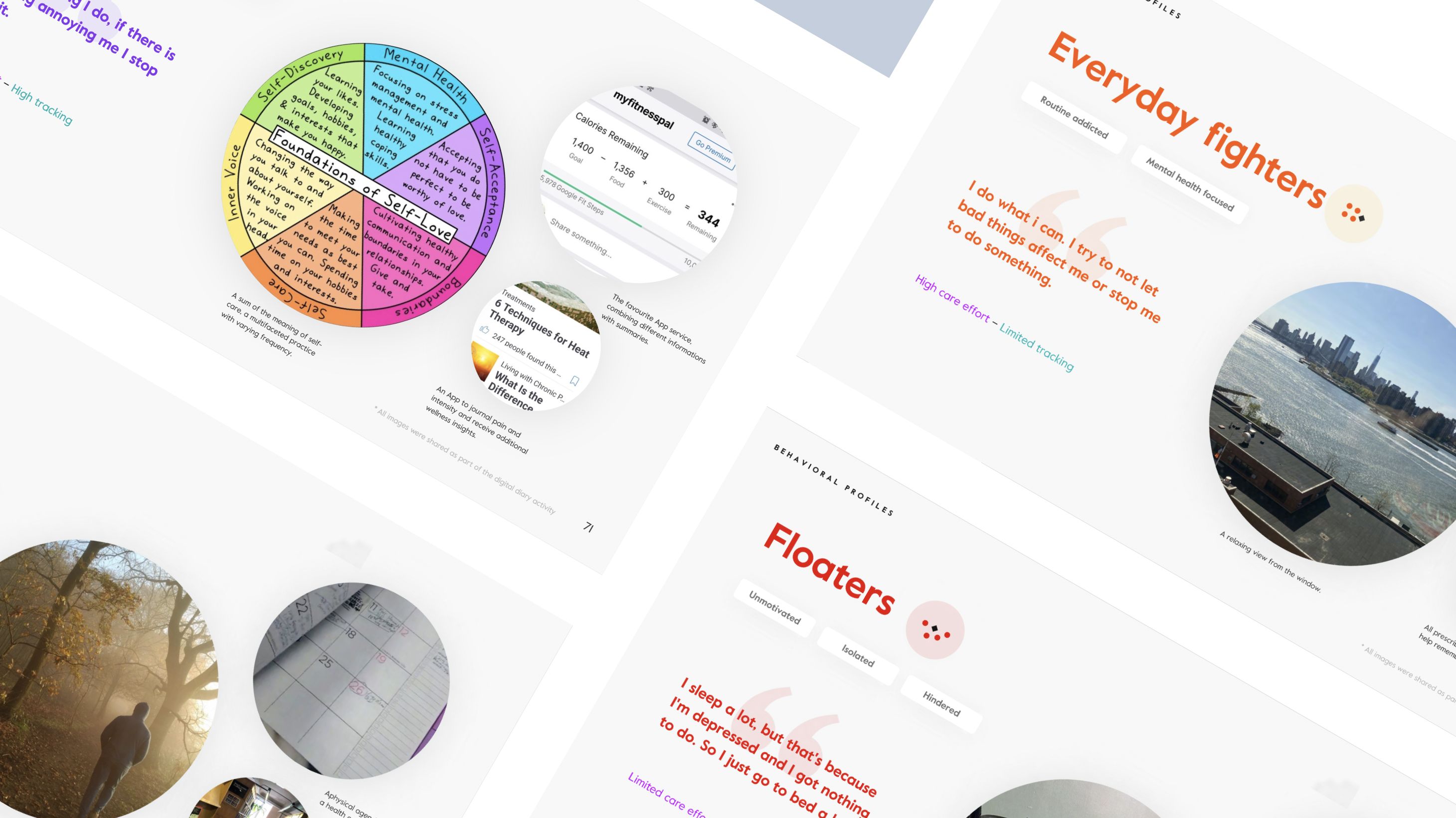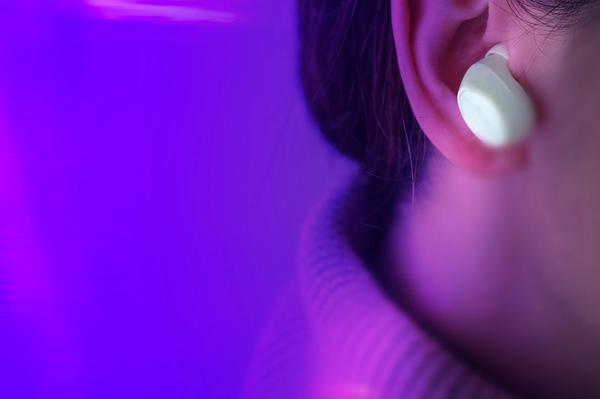From ageing to agency: new service opportunities for health tracking
Exploring emerging behavioural patterns of the 60+ population when it comes to prevention and care, with Amplifon and Publicis Sapient
How to understand they way people conceive self-care, how it is applied in their daily lives and how they respond and adapt to their changing bodies and minds.
We conducted extensive primary research that combined interviews and observations with people from the US and the UK to map the variety of behaviours regarding self-care.
A strategic framework and detailed understanding of the behaviours, needs and expectations for the 60+ population's attitude towards device-enabled self-care, that could lead to the design of a variety of services and experiences.
Ageing people are going through changes in their bodies and minds affecting their routines and behaviors. They behave in a variety of ways that are complex to observe.
Some of them are striving to take care of themselves while facing multiple struggles. Others are increasingly integrating technology into their daily lives to improve their self-care. The majority of them are expanding their awareness of well-being practices, along with their expectations for the quality of life they want to maintain.

To better understand the current experience of older generations in taking care of themselves we adopted multiple research methods. We traveled to London and Austin to meet them in person, observe their behaviours and listen to their stories, challenges, and experiences. As it's hard to recruit and engage the elderlies through standard recruiting methods or meet them online, we relied on visits to public gardens, libraries and cultural centres to observe, intercept them and spend time conversing about their relationship with health and technology. At the same time, we conducted in-depth interviews with selected participants with specific symptoms and diseases we were interested in. Those conversations helped us understand better their behaviours, and how they responded to the changes in their lives and ecosystems, as well as what they use technology for. These qualitative research activities helped us consolidate insights into four main behavioural drivers and a strategic framework, to design for the ageing population.

The project enlightened the need to see older people's behaviors through the lens of their changing agency. Agency is defined as one's perception of their ability to perform and control the impact of their actions. This key concept should be pivotal to the design for the older generation, accounting for the diversity of bodies, minds, and lifestyles while supporting them in their care. The actionable framework we delivered includes a model to understand agency, and six behavioural profiles, characterised by different needs, enablers, and blockers in their relationship towards self-care and its tracking. The ultimate goal is to use this as a guiding asset to conceive new products and services for the elderlies that resonate with their specific conditions and expectations.


